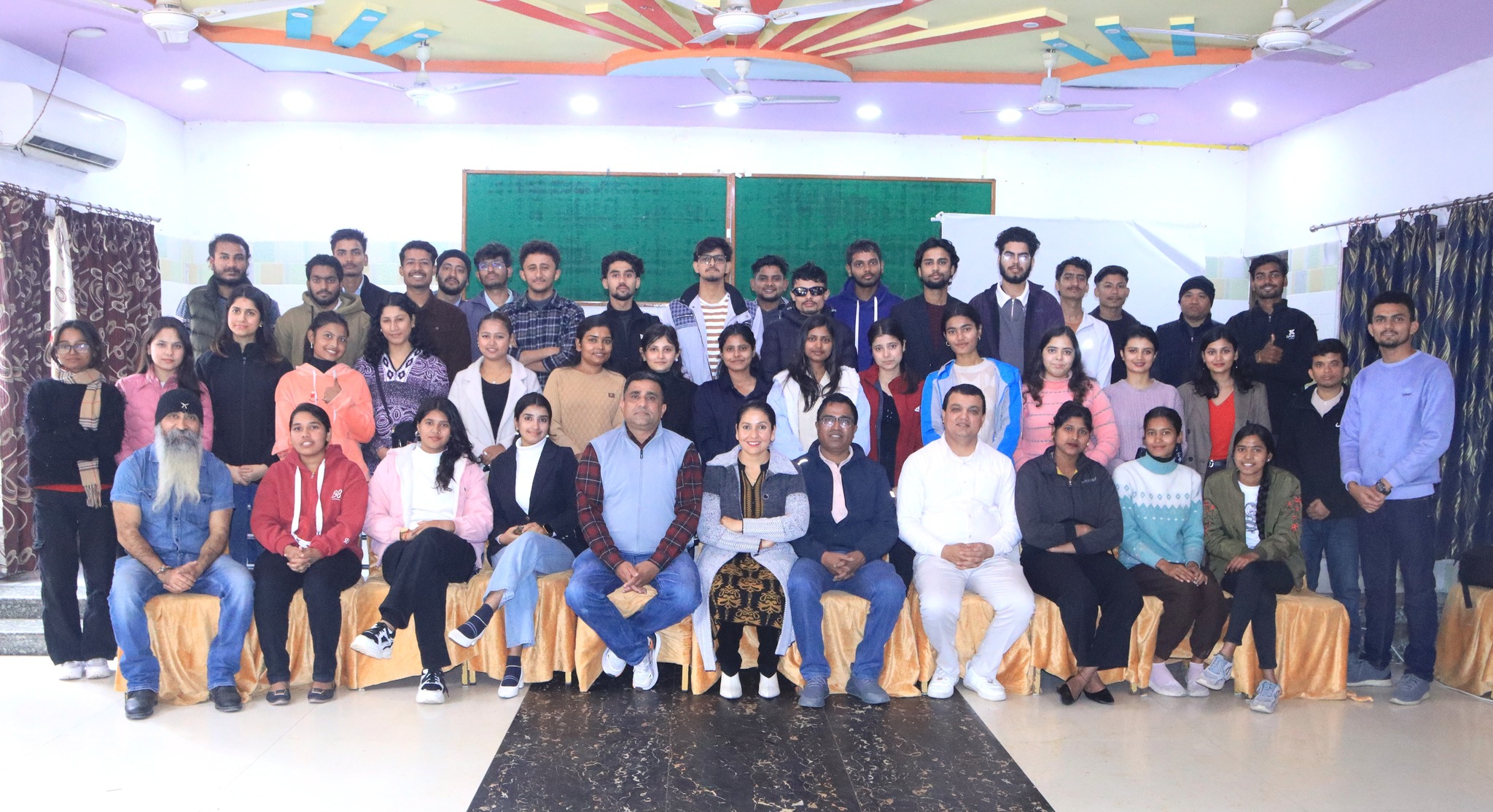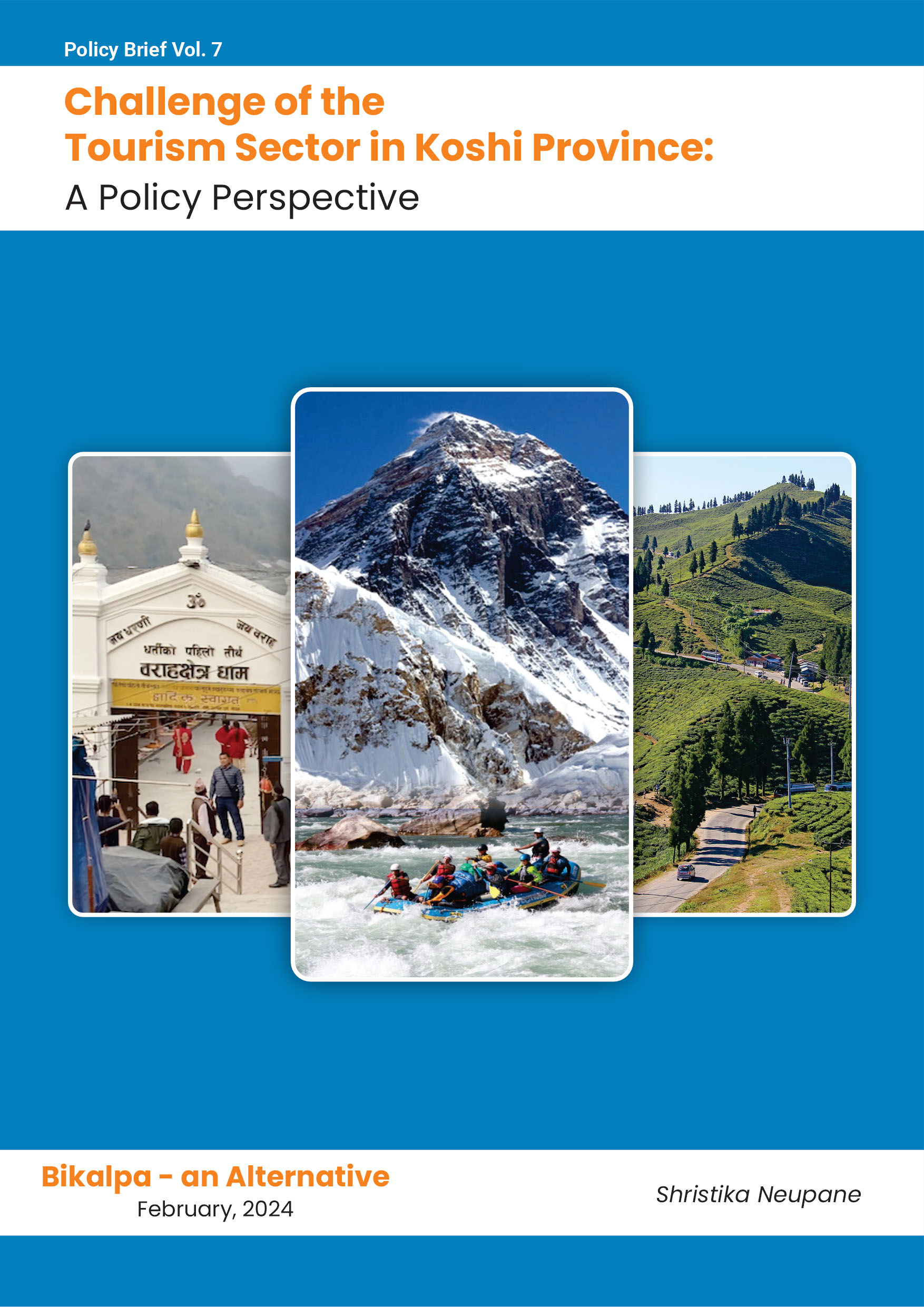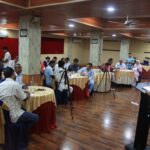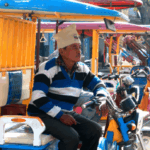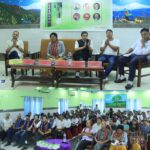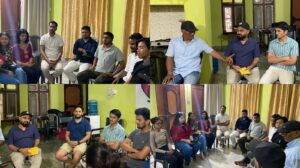
Bikalpa an Alternative organized a panel discussion program on “Opportunities and Challenges in the Media Sector” on 1st February 2025 at Hotel Shree Krishna. The event aimed to provide a platform for experts to share their opinions and experiences in the field of journalism and media. The discussion featured prominent media professionals who provided valuable insights into the evolving landscape of journalism. Mr. Basanta Adhikari, Executive Director of Bikalpa Alternative, moderated the session.
The panelists included Mr. Bharat Khadka, (President of the Federation of Nepali Journalists, Koshi Province) Mr. Bibek Gautam, (Chief Editor of Hamromat.com), Ms. Shushila Pathak, (President of the Federation of Nepali Journalists) and Mr. Bandu Pokhrel, (Managing Director of Udgodh Daily, Morang). Each panelist brought unique perspectives that enriched the discussion, addressing the various opportunities and challenges in today’s media sector.
The program commenced with a warm welcome from Mr. Basanta Adhikari, who articulated the objectives of the discussion. He introduced all the panelists and initiated the conversation with a common question, allowing each panelist to share their thoughts on the media sector’s current state.
Bharat Khadka, (President of the Federation of Nepali Journalists, Koshi Province).

Mr Bharat Khadka shared his experiences in journalism, highlighting the critical role of the press in society despite the numerous challenges journalists face. In his opening remarks, Khadka emphasized that where difficulties arise, journalism must play its role. Reflecting on his journey, he recounted instances where he was offered temptations and faced threats but remained steadfast in his commitment to truth and integrity. He asserted that true journalists do not succumb to fear or intimidation. Instead, they persist in their duty, ensuring that both society and the nation continue to progress.
He further remarked that almost all journalists encounter threats for their work. However, their dedication to truth compels them to continue writing, even at the cost of personal risk. Khadka recalled the sacrifices made by journalists during the People’s War, where many lost their lives or were brutally attacked. Despite these adversities, he argued that had journalists given up, societal progress would have been hindered. His words highlighted the significance of fearless journalism in upholding democracy and fostering social change.
Bibek Gautam, Chief Editor of Hamromat.com
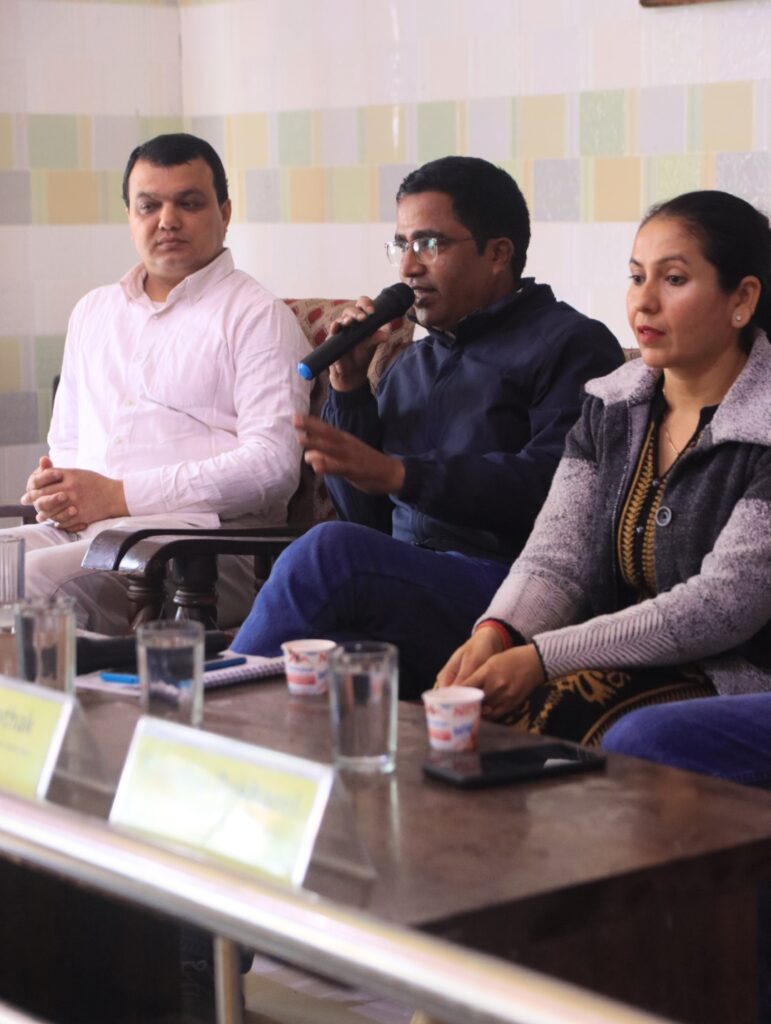
He shared his personal journey into journalism, reflecting on an impactful article he had written in the past. During the discussion, Gautam recounted an incident from 2056 BS when he exposed misconduct in schools through an article published in Blast. The article, titled The Shameless Dance of Teachers in Schools, highlighted the issue of teachers arriving at school under the effect of alcohol. This report created a significant stir, leading to apologies from some teachers and resignations from others. This incident deepened his commitment to journalism, reinforcing its role in social change.
He also addressed the evolution of journalism education in Nepal. He shared previously; that formal training opportunities were scarce. However, today, various training programs and journalism courses are available from the +2 level onwards. Gautam emphasized that a degree alone does not make one a competent journalist; practical experience and adherence to journalistic principles, such as the “5W1H” framework (Who, what, When, Where, Why, and How), are crucial.
The discussion also reflected both the opportunities and challenges in the media sector, encouraging aspiring journalists to focus on ethical reporting and continuous learning. The session highlighted the critical role that fearless journalism plays in upholding democracy and driving social change. It emphasized that without the courage and dedication of journalists, the very fabric of a democratic society could unravel. This support is crucial to ensure that journalists can continue their indispensable work without the looming threat of repression or censorship. The call to action stressed that protecting journalists is not just about safeguarding individuals but about preserving the integrity and progress of society.
Shushila Pathak, (President of the Federation of Nepali Journalists, Morang)

As the keynote panelist. Pathak shared her inspiring journey in journalism, which began as a newsreader on the radio and later transitioned to Makalu Television around 2066 B.S. She emphasized her dedication to reporting, mentioning that she has consistently written at least one news article daily, primarily covering education, health, and women’s issues.
She highlighted that journalism is often seen as the voice of the voiceless, playing a crucial role in shaping public opinion and advocating for social justice. However, she also shed light on the challenges the media sector faces today. Journalists, particularly women, encounter difficulties on multiple fronts, including familial, social, political, and cultural barriers. Gender bias, safety concerns, and limited opportunities for leadership positions were among the key issues discussed.
The session highlighted the need for institutional support, policy reforms, and societal change to ensure a safer and more inclusive environment for journalists. She urged media organizations to promote equal opportunities and foster a culture of integrity and professionalism. The discussion concluded with a call to action for all stakeholders to collaborate in strengthening media freedom while addressing the challenges faced by journalists, especially women. The event provided valuable insights into the evolving landscape of journalism and the steps needed to overcome existing barriers.
Bandu Pokhrel, (Managing Director of Udgodh Daily)

The final panelist provided valuable insights into the evolving landscape of journalism. At first, he emphasized the significance of passion in pursuing journalism. Mr Pokhrel highlighted that, while he had multiple career options, he chose journalism because of his deep interest in the field. He described journalism as a form of “freelancer job,” where individuals with the right skills to gather and present information can establish themselves as journalists. He pointed out that while journalism today is often associated with glamour, it was not always the case. In earlier times, journalism was primarily about social responsibility rather than prestige. Reflecting on his journey, Pokhrel shared that his motivation to enter the media sector was to expose societal wrongdoings and raise awareness among the public. He stressed that journalism plays a crucial role in holding power accountable and informing citizens about important issues. However, he also acknowledged the challenges, including financial instability, political pressures, and ethical dilemmas.
The discussion highlighted the need for journalists to be resilient and adaptive in the rapidly changing media landscape. Participants agreed that, despite the challenges, journalism remains a powerful tool for societal change. The session concluded with a call to support ethical journalism and create an environment where media professionals can work freely and responsibly.
The discussion ended with a strong message of resilience and dedication. The panelists encouraged aspiring journalists to focus on ethical reporting, continuous learning, and upholding the values of journalism.

